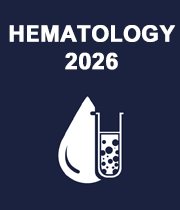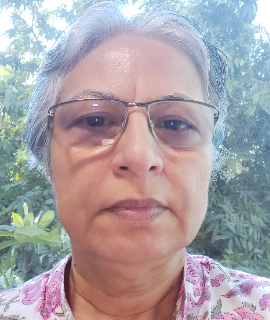Title : Improving outcomes of curable lymphoma in resource constrained regions
Abstract:
Despite a low incidence of lymphoma, mortality remains high in Low/Medium HDI countries [1, 2]. The possible reasons include – limited access to tertiary cancer or specialized centres, and lack of trained pathologists [3]. Patients present with advanced stage disease, lack of financial support for standard treatment, resulting in early treatment and follow up drop outs, difficulty in accessing second line therapy at relapse and physician reluctance to treat elderly lymphomas with a curative intent.
Data maintained in Hospital Management system (HMS) from 2011 to 2019 was used to study clinical presentation as well as the outcomes of standard therapy for patients with Hodgkin Lymphoma (HL) and Diffuse Large B-Cell Lymphoma (DLBCL), availability of newer therapies for relapsed and refractory lymphomas.
HL and DLBCL present with B symptoms in up to 50% and advanced stage (3 & 4) disease in > 50% [4, 5].
Real world outcomes of adult HL (≥18 years) suggests 94.7% patients receive standard first line therapy is adriamycin, bleomycin, vinblastine and dacarbazine (ABVD) with 5-year event free survival (EFS) of 85.4% and 74.6% for early and advanced stage. This compares well with outcomes reported from the developing world. However there is a significant drop in adherence to follow-up in the first two years post completion of treatment increasing the risk of late presentations of relapsed disease and increased mortality [4]. 75% relapsed and refractory HL received salvage therapy and 23% underwent the recommended high dose chemotherapy and auto stem cell transplant (ASCT). Brentuximab vedotin therapy was given in a small group who could afford the treatment “out-of-pocket”. The outcomes compare well with the data from transitioned countries. [6].
Abbreviated chemotherapy cycles and omission of radiotherapy for early-stage DLBCL, adversely impacted the 3-year event free survival (EFS) [5]. Reducing therapy, should be limited to a select group of patients who undergo adequate staging with PET-CT scans at diagnosis and response assessment. This information is significant since the option of salvage treatments is available to < 50% of relapsed DLBCL patients and high dose chemotherapy with ASCT is feasible in < 10% adult patients [5].
Most clinicians in a busy practice setting with concerns of comorbidities, frailty and disproportionate toxicity in the older patients tend to reduce dose and use less intensive or abbreviated regimens, impacting the outcome. A retrospective study helped understand the magnitude of the challenges. Careful co- morbidity and performance status assessment, cross-consultation with specialty colleagues regarding comorbidity management prior to definitive therapy, use of pre-phase therapy and generic growth factors, and use of age and fitness appropriate regimens shows improved outcomes for older patients treated with appropriate dose intensity [7].
Over 80% of people in India have no medical insurance. Biosimilar rituximab have been a game changer in the treatment of B-cell non-Hodgkin lymphoma in India [8]. Our experience makes us believe that biosimilars and generic medicines can contribute towards improving outcomes of cancer patients.
Audience Takeaway:
- Importance of regular audits of data to improve on outcomes of patients
- Health Care workers in Low and Middle Income countries can incrementally improve outcomes of Lymphomas
- The research that other faculty could use to expand their research or teaching
- It provide a practical solution to a problem that could simplify or make a designer’s job more efficient



